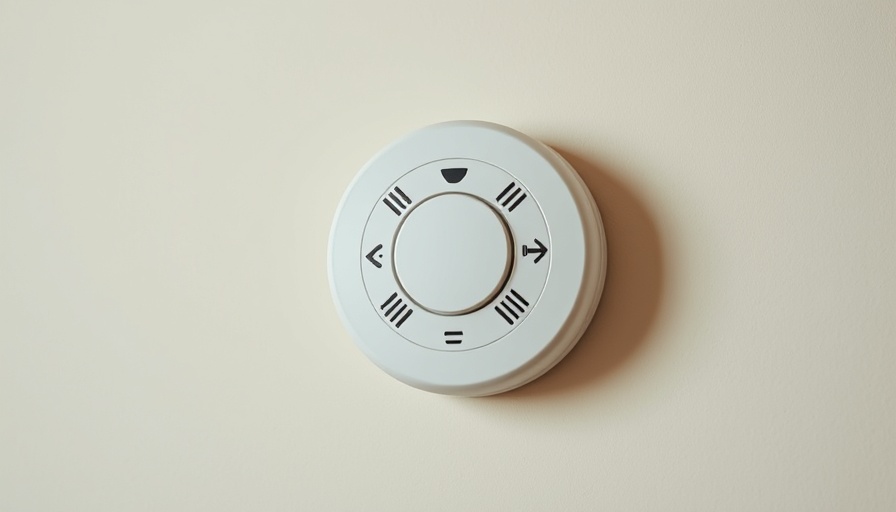
Breaking Down Barriers: Understanding Why Men Ignore Sleep Apnea
When it comes to health concerns, men often find themselves caught in a web of societal norms and personal stigmas. Sleep apnea, a condition that can quietly wreak havoc on one’s health, is a prime example. Despite its prevalence, many men still resist seeking help due to fear of appearing weak or broken, a reflection of traditional masculine culture that values endurance over vulnerability.
The Hidden Costs of Ignoring Sleep Apnea
For many men, acknowledging sleep apnea feels like admitting defeat. They often push through the relentless fatigue induced by this disorder, pouring energy drinks and caffeine into their systems, rather than questioning what lies beneath their exhaustion. This reluctance not only impacts their health but also their relationships, leading to emotional distance and misunderstandings.
Identifying the Warning Signs That Matter
Men might dismiss their partner's sleep disturbances as mere irritations, but the truth is, symptoms like loud snoring or gasping for air are serious signs. Even more alarmingly, if you're dozing off during activities that should keep you alert – a meeting or while watching TV – you need to pay attention. Other indicators include morning headaches, persistent tiredness despite adequate sleep, and mood swings, all of which are crucial flags that your body might be crying out for help.
How Sleep Apnea Affects Relationships
Ignoring sleep apnea doesn’t just put your health at stake; it threatens the foundation of intimate relationships. The snoring can keep partners awake at night, but the long-term hormonal changes and irritability can build emotional barriers over time. Men may find their libido increasingly impacted, causing strain and unresolved tension within their partnerships. Understanding this connection can empower men to confront the issue head-on.
The Bodily Impact of Sleep Apnea
Each time a person stops breathing during sleep, their body undergoes a mini-crisis, leading to increased heart rates and spikes in blood pressure. This chronic stress on the cardiovascular system can lead to serious health issues over time, specifically hypertension and increased risks of heart attacks and strokes. For many, weight gain becomes a battle as well, particularly because hormones that regulate hunger and appetite can be deeply affected by sleep deprivation.
Sleeping Positions: An Overlooked Factor
Though it may seem trivial, sleeping position plays a significant role in the severity of sleep apnea. Those who sleep on their backs may find their airways compromised due to gravity's pull on the tongue and soft palate. Making simple adjustments in sleeping position can be a game changer for some men, creating immediate improvements in their nighttime breathing.
Future Outlook: The Importance of Addressing Sleep Apnea
As awareness grows, it's crucial for men to understand that tackling sleep apnea is not simply about individual health but also about maintaining strong relationships and emotional connections. This condition is often managed successfully with lifestyle changes and medical interventions. Men are encouraged to adopt a proactive approach by discussing their sleep issues openly, seeking medical advice, and making lifestyle changes.
Action Steps for Men to Take Control of Their Sleep Health
If you’re experiencing symptoms of sleep apnea, it’s time to take charge now. Start by consulting with a healthcare professional and consider keeping a sleep diary to track your symptoms. Engage in conversations with your partner about any concerns, and encourage honest discussions about well-being. By being proactive and seeking help, men can reclaim their health and nurture the relationships that matter most.
Understanding and Overcoming Stigmas
Breaking the stigma associated with seeking help for health problems is vital for men. Societal pressures can discourage vulnerability, tied to outdated notions of masculinity. However, recognizing that health issues don't make someone weak but demonstrate strength is essential for fostering a healthier future. Each step forward can create a supportive environment that encourages men to prioritize their health without fear of judgment.
In conclusion, the conversation about sleep apnea is critical for men looking to improve their health profile, especially regarding mental well-being. By addressing sleep apnea, not only can men enhance their health, but they can also bolster their relationships, ultimately leading to a happier, healthier life. Let's prioritize action and make sleep health a community discussion.
 Add Row
Add Row  Add
Add 



Write A Comment